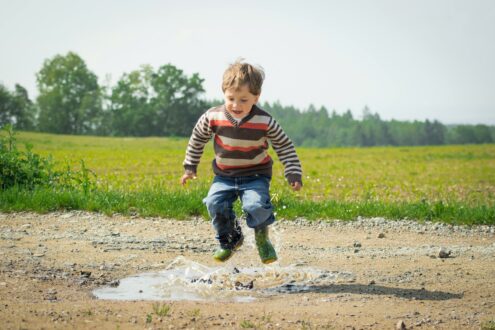Managing a natural disaster can be stressful. Facing a situation where your entire community went through unexpected events like a flood, earthquake, fire, or any other calamity can be overwhelming. Staying strong through this time can lessen your worry. The waste left after the disaster can stress you out, but instead of worrying, work collectively with your community members during these times.
After a disaster, people seek recovery, and the initial steps for re-establishment include disaster waste cleanup. The best waste management way is to hire professional removers. Click here to hire top-notch rubbish removal services.
Challenges
Disaster management is hurdled by several challenges that interrupt the workflow of the re-establishment workers to timely provide their assistance to prevent the situation from worsening. Such situations are out of human control and turn out as the after-effects of natural disasters, so priority is given to tackling them and then proceeding to rehabilitation just like waste management.
Some of the challenges that you may face for waste management after an unexpected event include:
- High cost of collection services
- High transportation cost
- Lack of available services
- Less funding resources available
Some other problems that may occur after a disaster may include damaged walls, shortage of food and water, excess moisture, and contamination. To manage the waste, contact Waste Recycle for efficient and reliable waste removals.
Managing The Risk And Ensuring Safety
After a natural calamity managing the waste becomes the priority. It can include many hazardous wastes that can be harmful to both human health and the environment. So, we have to clean up our communities by knowing the nature of the emergency. It will ensure the management of the risks. If you face a flood, you must remove excessive water from your houses.
Floods disturb routines, and it becomes too challenging to continue basic chores like preparing food, sleeping peacefully, and in case of fire removing burnt items is essential. Managing the smoke can be daunting. It’s better to leave that place to avoid any breathing-related issues. If you see someone trapped, try to help them if possible.
You can ensure safety by following the guidelines for safe disposal methods. Incorporate eco-safe practices and reduce landfill disposals. Consider recycling or upcycling. Create public awareness of eco-friendly waste disposals. Other preventive measures can be taken like vaccines and monitoring water quality, etc.

Image Source: Pexels
Waste Management
Waste management requires physical labor. Don’t try to do this alone. It is better to ask for help from professionals, your family, or your friends. Examine the kind of waste you need to remove. If you are short on budget, you can do it yourself, but seeking help from someone can save you from any harm or cuts, and your time will also be saved.
Categorize the waste and remove the hazardous material first. Hazardous materials require particular types of equipment and proper knowledge to remove. Clean up all the mess and check if anything can be recycled or need to be disposed of. Make separate boxes from the recyclables. Dispose of the damaged items. Remove all the waste in bulk to ensure cost-effective waste removal.
Don’t worsen the scenario by handling your waste to unprofessionals. Many people in the market are doing waste management tasks without any permit. They dispose of the waste illegally. While you already have the worst scenario, don’t risk handling your waste with ambiguous workers. Ask for a license before handling your waste to them.
Conclusion
Disasters are uninvited and can cause long-lasting effects even if you have prepared for them. It’s better to stay at your place than go to the affected areas. Disaster management may include many challenges. Being part of the community means working with others to help the affected ones and clean society. After unexpected events, problems like blocked pipes, smoke, excess water, damage, and contamination arise. Follow the above tips on handling waste, or seek help from professionals!







Leave a Reply